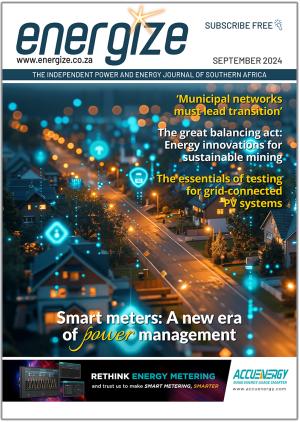Insufficient discussion about nuclear power, especially compared to renewable sources, has led to the spread of misinformation about the energy source and more needs to be done to educate the public.
Speaking at the Nuclear Seminar 2024, in Irene yesterday, September 12, Minister of Energy and Electricity Kgosientsho Ramokgopa expressed concern about the silence of nuclear experts. “Where are the nuclear people? We’ve got a solid record with 76 years of contribution to the science and technology of nuclear.”
The seminar, organised by the Ministry of Electricity and Energy, brought prominent figures in the energy sector together to discuss the status and value of nuclear energy for Africa. It included panel discussions on the future prospects of the technology and readiness of the industry for small modular reactors (SMRs) and pressurised water reactors.
“Nuclear is part of South Africa’s future. It’s indispensable to the resolution and attainment of energy sovereignty in this country,” Ramokgopa said.
It provides essential baseload energy, which is necessary to support the intermittent nature of renewable sources such as wind and solar, he added. “For these technologies to succeed, they require this baseload and we have been able to demonstrate that it is clean, efficient and reliable.”
Ramokgopa also addressed criticisms of nuclear power, particularly its reputation for being expensive, by explaining the long-term benefits that outweigh the initial investment. “They will tell you that the capital cost is high but, when you look at the levelised tariff over the life of this asset, you will see that it is ultra-competitive.”
There is great potential for SMRs to play a transformative role in South Africa’s energy mix. “With advancements in technology, we now have small modular reactors – 300 MW and below – that can be manufactured in a factory, transported and assembled on site,” he said. SMRs could offer a cost-effective and scalable solution for expanding nuclear capacity and reducing the need for extensive grid expansion by locating generation closer to high-demand areas.
“Nuclear has regained interest because it is clearly a source of energy that has almost no carbon dioxide emissions. It has moved from a notable absence to being recognised as an energy source that needs to be accelerated,” said Director General of the International Atomic Energy Agency Rafael Mariano Grossi.
Nuclear power’s role is not exclusive but complements other energy sources. “We are firm supporters of renewable energies. What we need are intelligent choices and alternatives to be made available, especially in low and middle-income countries,” said Grossi.
Ramokgopa said: “It’s not solar versus nuclear. It’s not solar and wind on one side and coal and nuclear on the other side. We are talking about an energy mix. It involves all of them working together for the benefit of the country.”















